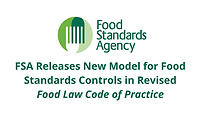UK Provides Guidance to Importers on Risk Categories Under Border Target Operating Model

Image credit: Matthis Volquardsen via Pexels
The UK Government recently posted two guidances—one for the EU, Switzerland, Norway, Iceland and Liechtenstein, and another for non EU-countries—about risk categories and requirements for animals and animal products imported to Great Britain under the new Border Target Operating Model (BTOM).
BOTM introduces new food import controls, intended to prevent delays at the UK border by reducing the need for physical checks for many types of goods, and by ensuring that checks take place in a location other than ports to enable traffic to flow freely. The new model categorizes live animals, germinal products, products of animal origin (POAO), and animal byproducts (ABPs) as high-risk, medium-risk, or low-risk. Each category has different requirements.
BOTM will be phased in throughout 2024, beginning on January 31, at which time firms in the EU, Switzerland, Norway, Iceland, and Liechtenstein that are importing live animals or animal products into Great Britain will be required to identify the BOTM risk category for the imported good and follow the sanitary and phytosanitary (SPS) rules for that risk category.
The second phase will begin on April 30, at which time non-EU countries will be required to follow BOTM risk category requirements. BTOM risk categories for non-EU countries only apply to countries that have been subject to a risk assessment, specifically:
- Argentina
- Australia
- Botswana
- Brazil
- Canada
- Chile
- China
- Ecuador
- India
- Israel
- Japan
- Namibia
- New Zealand
- Nicaragua
- Singapore
- South Africa
- South Korea
- Thailand
- Turkey
- Ukraine
- United States
- Uruguay
- Vietnam.
Other countries that have market access but have not been subject to a BTOM risk assessment will continue to follow existing import processes.
Spreadsheets detailing the full list of import risk categories for specific animal and animal product imports, for both EU countries and non-EU countries, can be found on the UK Government’s website, which also details the requirements for low, medium, and high-risk products imported from both EU and non-EU countries.
Risk Category Requirements for EU Countries
Low-Risk
- Use the import of products, animals, food and feed system (IPAFFS) to notify authorities before goods arrive in Great Britain
- A health certificate is not required
- A commercial document from the supplier is required
- Goods will not be subject to routine documentary, identity, and physical checks, but beginning April 30, checks may still be undertaken where intelligence indicates a specific risk
- Beginning April 30, goods must enter Great Britain through a point of entry with a border control post (BCP) that is designated to check the commodity
- For EU goods entering Great Britain through western coast ports, there will be a different implementation date for intelligence-led checks and for the requirement to enter through a port with a BCP, which is outlined in the full BOTM.
Medium-Risk
- Use IPAFFS to notify authorities before goods arrive in Great Britain
- Beginning January 31, goods must have a health certificate issued by the competent authority in the country where the goods originate
- Beginning April 30, goods must enter Great Britain through a point of entry with a BCP that is designated to check them, and may be subject to documentary, identity, and physical checks
- For EU goods entering Great Britain through western coast ports, there will be a different implementation date for intelligence-led checks and for the requirement to enter through a port with a BCP, which is outlined in the full BOTM.
High-Risk
- Use IPAFFS to notify authorities before goods arrive in Great Britain
- Goods must have a health certificate issued by the competent authority in the country where the goods originate
- Most consignments in the high-risk category are already subject to physical import checks, which will continue in the same way after January 31.
Risk Category Requirements for Non-EU Countries
Low-Risk
- Use IPAFFS to notify authorities before goods arrive in Great Britain
- A health certificate will not be required beginning April 30
- Goods must continue to enter Great Britain through a point of entry with a BCP that is designated to check the commodity
- Beginning April 30, goods will not be subject to routine documentary, identity, and physical checks, but checks may still be undertaken where intelligence indicates a specific risk
- A commercial document from the supplier is required.
Medium-Risk
- Use IPAFFS to notify authorities before goods arrive in Great Britain
- Beginning April 30, goods must have a health certificate issued by the competent authority in the country where the goods originate
- Beginning April 30, goods must enter Great Britain through a point of entry with a BCP that is designated to check them, and may be subject to documentary, identity, and physical checks
- The rate at which identity and physical checks take place may change; new check rates will be confirmed as soon as they are available, but indicative rates are set out in the full BOTM.
High-Risk
- Use IPAFFS to notify authorities before goods arrive in Great Britain
- Goods must still have a health certificate issued by the competent authority in the country where the goods originate after April 30
- Most consignments in the high-risk category are already subject to physical import checks, which will continue in the same way after April 30.
Looking for a reprint of this article?
From high-res PDFs to custom plaques, order your copy today!






